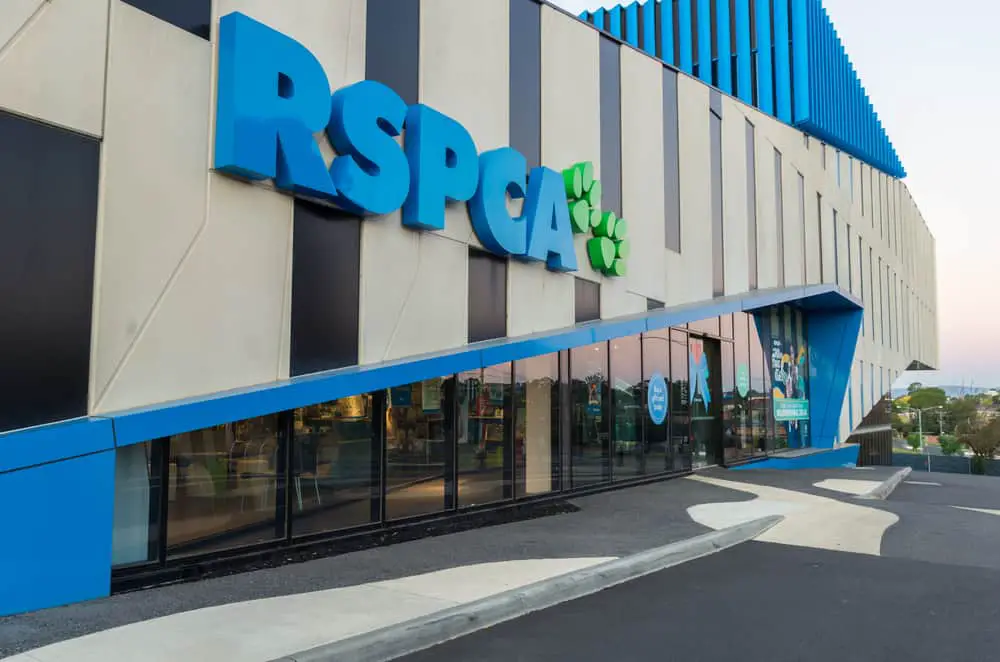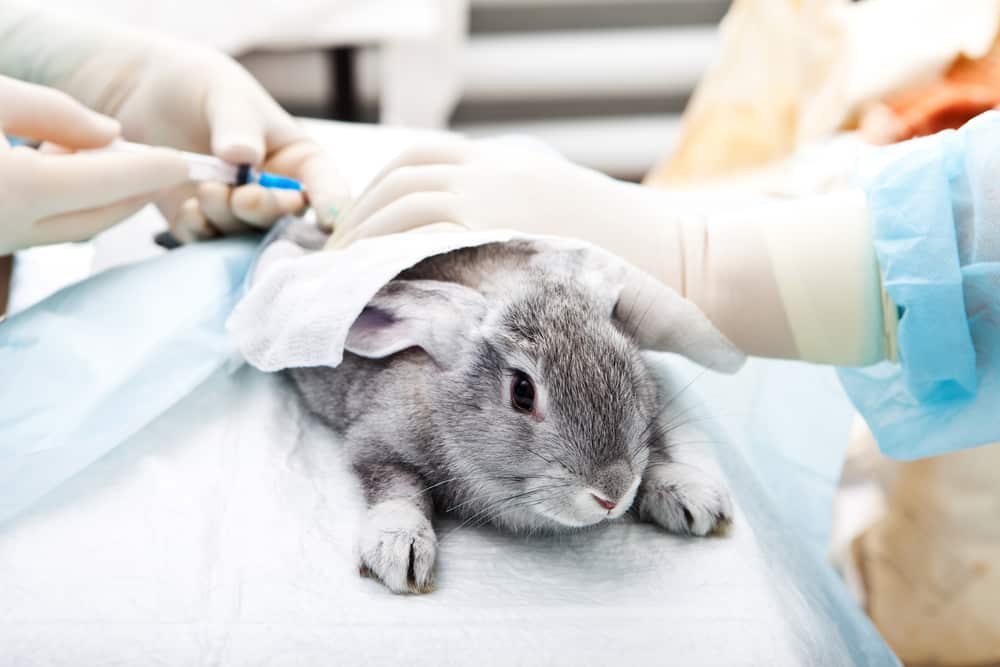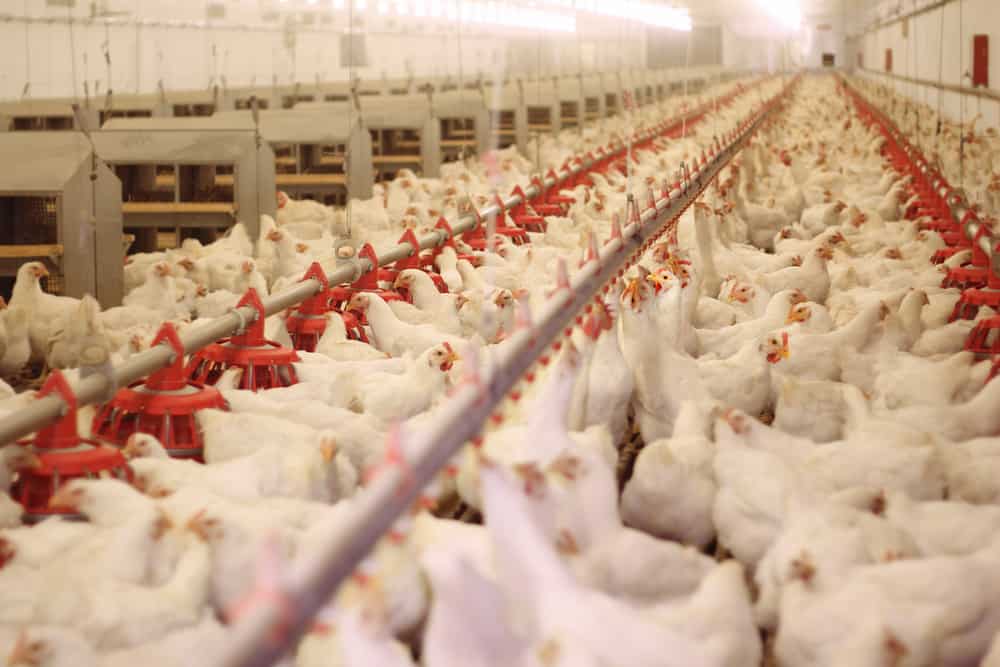Animal cruelty is a worldwide issue that needs to be solved. It has been found in every country and often goes under-reported or unnoticed by the general public. However, some nations excel at animal rights and actions to limit animal cruelty within their borders. The United Kingdom is one of these nations.
The United Kingdom (UK) is often regarded as one of the safest nations for animals, particularly now that they have increased the animal cruelty punishment to five years imprisonment from its previous six-month sentence. They have also banned several cruel sports, cosmetic testing, and farming equipment, like the sow stall.
Although the UK has many regulations in place that render it a safer nation for animals than others, they still have several issues of animal cruelty that need to be resolved. This article will take an in-depth look into what the UK is doing right to become a cruelty-free nation and what they still need to improve for the sake of animal welfare.
The UK Has Strict Animal Cruelty Penalties
A serious deterrent for acts of animal cruelty within a nation is legislature(s) that has clear and hefty punishments for offenders.
Each country approaches this in its own way. Some opt for hefty fines and five months to a year of imprisonment, while others have relatively pitiful or virtually no punishment in place for humans who inflict cruelty on animals.
Over a Million Animal Abuse Cases Are Reported Annually
Luckily, the United Kingdom will have one of the harshest punishments for animal cruelty starting June 29, 2021.
Currently, animal cruelty perpetrators in the UK can receive up to a six-month prison sentence. Still, with the passing of the Animal Welfare (Sentencing) Bill, the maximum penalty will increase to five years.
The push for this sentence increase is in response to public outcry regarding numerous offenders receiving little to no repercussions for some of the most heinous animal cruelty cases.
Groundbreaking Animal Protection Legislature in the UK
One example, in particular, was the case of Andrew and Daniel Frankish, brothers that repeatedly stomped on a bulldog before throwing it down a flight of stairs. This unimaginable cruelty paralyzed the dog’s back legs and led to its euthanasia, as its injuries were too severe for recovery.
The case of such cruelty towards an innocent animal was enough to shock members of the public, but what really got people’s attention was the fact that neither brother was sentenced to jail time despite filmed evidence of the incident. And this was not an uncommon occurrence.
In fact, between 2013 and 2015, a mere 7% of the 3,000+ people in England and Wales convicted of animal cruelty receive jail terms. of the 3,000+ people in England and Wales convicted of animal cruelty received jail terms. This staggering statistic led to increased efforts to raise the maximum sentence and ensure more individuals convicted of this crime serve a sentence that more accurately reflects the seriousness of the situation.
In this respect, the UK is setting quite a striking example for nations worldwide and will hopefully entice others to follow in its footsteps.
Most Animal Abuse Cases Involve Dogs
It’s a sad tale to tell, but man’s best friend is not always treated as such within the UK’s borders. These loving and loyal creatures are undoubtedly the most abused animals in the UK and make up most of RSPCA’s abuse cases.
In 2015, it was
determined that 57% of RSPCA’s cases involved dogs, which amassed a sinister total of 81,146 cruelty investigations. This figure is more than double the number against cats at 33,844 (23.6%). After these two, the animal with the most investigations were equines at 15,965 (11.%).
Statistics like these forced Parliament to seriously reconsider their sentences for animal cruelty to hopefully reduce the number of cases that occur yearly.
In addition to the RSPCA’s records of the most abused animals, they also released statistics that state which county in the UK had the most investigations regarding animal abuse and cruelty complaints.
They discovered that the top county was, unsurprisingly, Greater London with 11,050 complaints, followed by West Yorkshire with 7,694, which Greater Manchester closely follows at 7,333.
The listed county with the least number of complaints investigated was Lincolnshire, but even at the bottom of the list, this county had 3,264 complaints investigated.
Cosmetic Animal Testing is Illegal
The importance of this fact to animal cruelty cannot be understated. One of the worst examples of animal cruelty is cosmetic animal testing. Many nations have used animal testing for cosmetic products for quite some time, and it wasn’t until 2013 that this began to change.
In March
of 2013, cosmetic animal testing was banned in the EU, including the UK. This one piece of legislature moved 27 countries away from cosmetic animal testing for good.
Banning this horrific form of testing was incredibly significant, as animal testing was preferred, and sometimes even required, for cosmetics.
Today, there are still nations that either require this form of testing or don’t outwardly ban it in their legislature. As a result, testers in these nations will opt for this method to provide credibility that their product is safe for human use. This allows them to more easily avoid future lawsuits if the product has unfortunate side effects.
Bans such as this have caused nations to increase their efforts to find suitable alternatives to animal testing to determine a safe product before human use. The hope is that, before long, animal testing, in general, will be banned from all nations, but globally banning it for cosmetics is a good start.
You can read on here to find out how to spot and buy true cruelty-free products here: What Does Cruelty-Free Really Mean? Ultimate Guide as well as you can read this one if you want to specifically get more information about animal testing facts in the U.K - 6 Must Know Animal Testing Facts in the Uk (2021)
The RSPCA Hotline Runs 24/7
Despite its six-month maximum sentencing for animal cruelty being higher than most nations worldwide and an even heftier sentence on the rise, cases of animal cruelty are still all too common in the UK
Animal cruelty cases occur so frequently that the Royal Society for the Prevention of Cruelty to Animals (RSPCA) hotline receives an animal cruelty-related call nearly every thirty seconds. This hotline is open 24/7, so the reports virtually never stop.
This doesn’t necessarily mean that every call is a confirmed case of animal cruelty, as the RSPCA is contacted to investigate the situation. But even if half of them were legitimate, that would still mean that thousands of cases of animal cruelty occur in a day. And these are only the ones being reported.
Over a Million Animal Abuse Cases Are Reported Annually
The RSPCA receives more than a million animal abuse reports yearly, as seen by their 2019 figure of 1,218,364 phone calls total. Sadly, despite the overwhelming number of cases, they can only solve about 100,000 animal abuse cases in a year.
While it’s encouraging that so many animals are able to receive the justice they deserve from a confirmed conviction, it is disheartening to see how many cases aren’t solved, how many go unreported, and how many convicted abusers receive very minimal sentences for their actions as indicated above in the 2013-2015 statistic.
There is hope that the increased sentence will help the number of animal abuse cases dwindle as offenders receive harsher punishments.
Many Cruel Animal Sports Have Been Banned
Sports involving animals can be a significant source of controversy where animal cruelty is concerned. There are some sports that most can agree are safe and even enriching for an animal, such as flyball for energetic dogs and pleasure riding for horses. In contrast, others are undoubtedly cruel, either directly to the animal or indirectly by affecting its overall population.
There are many sports the UK banned in 2004 with The Hunting Act that are still common in other nations. For example, it is illegal for citizens to hunt certain animals with the assistance of a dog, such as:
However, there is some gray areas here as it does not specify if dogs are permitted to flush out the animal, and it does not extend to drag hunting. This is a style where hounds are trained to follow an artificial scent.
Although fox hunting has been a large part of British culture for many years – the sport is dying out for its evident cruelty. Here’s the scoop: Is Fox Hunting Cruel?
What the UK’s Hunting Act Protects Against
The act focuses on eliminating the cruelty of using a dog to hunt for these animals. Still, it does not entirely ban all forms of hunting regarding them, as hunting can effectively help control their populations and is arguably less cruel than alternative methods, such as traps and poisons.
While dog-related hunting of these animals is banned, in addition to several other cruel sports, including dogfighting, greyhound racing, and cockfighting, many argue there is more that should be done to eliminate animal cruelty related to sports.
Animal rights advocates continually push for the Hunting Act to be amended and more thoroughly protect animals by including trail hunting, bird shooting, trophy hunting and increase punishments for those convicted.
Animal Testing Statistics Are Decreasing
One would think that banning cosmetic testing in the UK would have resulted in a drastic and substantial decrease in overall testing numbers from 2005 to today.
Regrettably, animal testing numbers in the UK have not been drastically reduced. The number of animal tests conducted in the UK rose considerably from 2005 to 2013, with a short dip in 2014 and a peak height of 4.14 million tests in 2015.
This was mainly attributed to the increase in testing as new technologies became available and increased research opportunities.
Thankfully, the nation can officially say that its numbers have been steadily declining from 2015 to today as they reached a new low in 2019 of 3.4 million procedures in Great Britain that involved living animals.
The new statistic is a 3% decrease from the previous year, and although it is a new low since about 2007, it is still a ways away from the nation’s lowest number of procedures of 2.62 million in 2001.
There are two types of procedures in the UK where living animals are used:
The overall decrease is partially due to alternative methods becoming more available and a general reduction in testing. You can read more about the alternatives to animal testing here - Animal Testing Alternatives (Ultimate Guide)
Compared to some other leading nations, the UK only tests on a fraction of the animals that others do. The USA tests on an average of 15.6 million animals a year – and China is even worse sitting at 20.5 million animals per year.
In saying this, some countries have banned animal testing altogether. Wouldn’t it be better to strive for that? Read on here: These Countries Have Banned Animal Testing (2021)
Sow Stalls are Banned
In addition to domestic/pet animals, most animal abuse and cruelty cases involve farm animals, and pigs are among the most common victims.
Farrowing Crates Vs. Sow Stalls
One of the most controversial and heinous pieces of farm equipment that inflict cruelty on pigs is the farrowing crate. These crates are legal in the UK. However, many individuals easily confuse these contraptions with the currently banned sow stalls.
There are distinct differences in the design and use of both sow stalls and farrowing crates, but animal rights advocates clearly state that both are cruel and should be illegal in the UK.
Sow Stall | Farrowing Crate |
|---|---|
Otherwise called a “gestation crate,” sow stalls are where sows are housed through pregnancy. | Pregnant sows are housed here only a week before giving birth and will remain here until piglets are weaned. |
Individual stalls | Individual stalls |
Extremely narrow, comparable to the size of a refrigerator | Narrower than a sow stall |
Cruelly restrict the sow’s ability to move or turn around | Severely restricts any movement. |
Most stalls are only large enough for standing or sitting. | Sows often don’t have enough room to lie down and can accidentally crush piglets. |
Although sow stalls were legally banned in the UK in 1999, farrowing crates are still widely used instead of a more humane alternative, such as group sow housing.
To get the full picture on exactly why factory farms are so cruel to animals, including sows, read on here: Are Factory Farms Cruel to Animals?
The UK Ranks Adequately on the VACI Index
The Voiceless Animal Cruelty Index was developed by international animal welfare advocates, Voiceless, and ranks 50 nations worldwide based on:
Nations with very low numbers under these categories of “Producing Cruelty,” “Consuming Cruelty,” and “Sanctioning Cruelty” are considered to be exceptionally adequate performers.
As a nation, the United Kingdom
ranks 20th on the VACI index with an overall score of 69, which means that the UK is an exceptionally adequate performer compared to other nations, especially when you look at their "Producing Cruelty" and "Sanctioning Cruelty" ranks.
How the UK’s Animal Welfare Score Could Be Better
The UK’s VACI score is severely affected by their "Consuming Cruelty", which receives a rank of 41, versus their "Producing Cruelty" rank of 20 and "Sanctioning Cruelty: rank of 8.
54% of the average UK citizen’s diet comprises of land-based animal protein, which is significantly higher than the global average of 35%.
However, Voiceless does concede that, as a member of the EU, the UK’s percentage is much lower than most. It can be potentially attributed to the fact that 12% of the nation’s population surveyed are vegetarians – this is more than any other nation in Europe.
If they somehow reduced the percentage of animal protein in their nation’s diet, they would quickly see their score drop and reach the rank of one of the best performers on the list.
More than a Billion Chickens Are Slaughtered Yearly
Chickens are one of the most common livestock animals and sources of protein in the average UK citizen’s diet. Chicken is usually cheaper than red meat, and many accept this fact without question.
What most don’t know is that chicken is cheaper partially because they are selectively bred and altered to grow faster, allowing producers to raise and slaughter them in less time for a quick profit.
Of the 1.1 billion chickens farmed in the UK every year, most are considered “fast-growing” chickens that are raised in factory farms. There are two primary focuses for breeding this kind of chicken, speed and meat yield.
How Do Producers Get a “Fast Growing” Chicken?
To accommodate growing demands, producers will carefully breed their chickens to ensure they put on a substantial amount of weight and generate large amounts of meat in a very short period before slaughter for sale.
Genetics companies have been able to practice and perfect this breeding style so effectively that they have reduced the amount of time it takes a chicken to meet slaughter weight by half.
The Cruelty of Accelerating a Chicken’s Growth
This type of breeding is cruel on chickens themselves as it put a great deal of pressure and strain on their young skeleton, muscles, and organs.
As a result, most of these chickens live in daily pain and suffer from various issues, including:
In addition to these severe health issues, the chickens are kept in inhumane conditions where they are fed unlimited amounts of food to fatten them up quickly. Before you assume that the egg industry is any different, trust us – it’s not! Egg production can be just as brutal.
Chickens bred for fast growth will continually feast until their genetic and physical ailments take hold. They will then become increasingly inactive to the point that they sit in their pen and eat day and night until slaughter.
It might sound like an odd ideal for us when we feel so run down by our daily lives. But as this would be incredibly unhealthy for us – it’s equally cruel to the chickens as it puts a mass amount of strain on their bodies and forces them to live an uncomfortable and short life.
If you want to know more about the cruelty behind the chicken industry and whether you can find a cruelty-free alternative – you should definitely read this: Is It Cruel to Eat Chicken?
Final Thoughts
Although there are specific issues in the UK that can be improved for the welfare of animals nationwide, this country is frequently ranked as one of the top four or five safest nations for animals worldwide.
The UK’s reinforcements on the animal cruelty sentence, as well as its active efforts to ban and amend existing legislature, is promising. It demonstrates that they not only pride themselves on prioritizing animal welfare but are dedicated to being a cruelty-free nation.
If their active efforts continue, the UK might quickly move up the ranks as the safest and most cruelty-free nation in the world.



